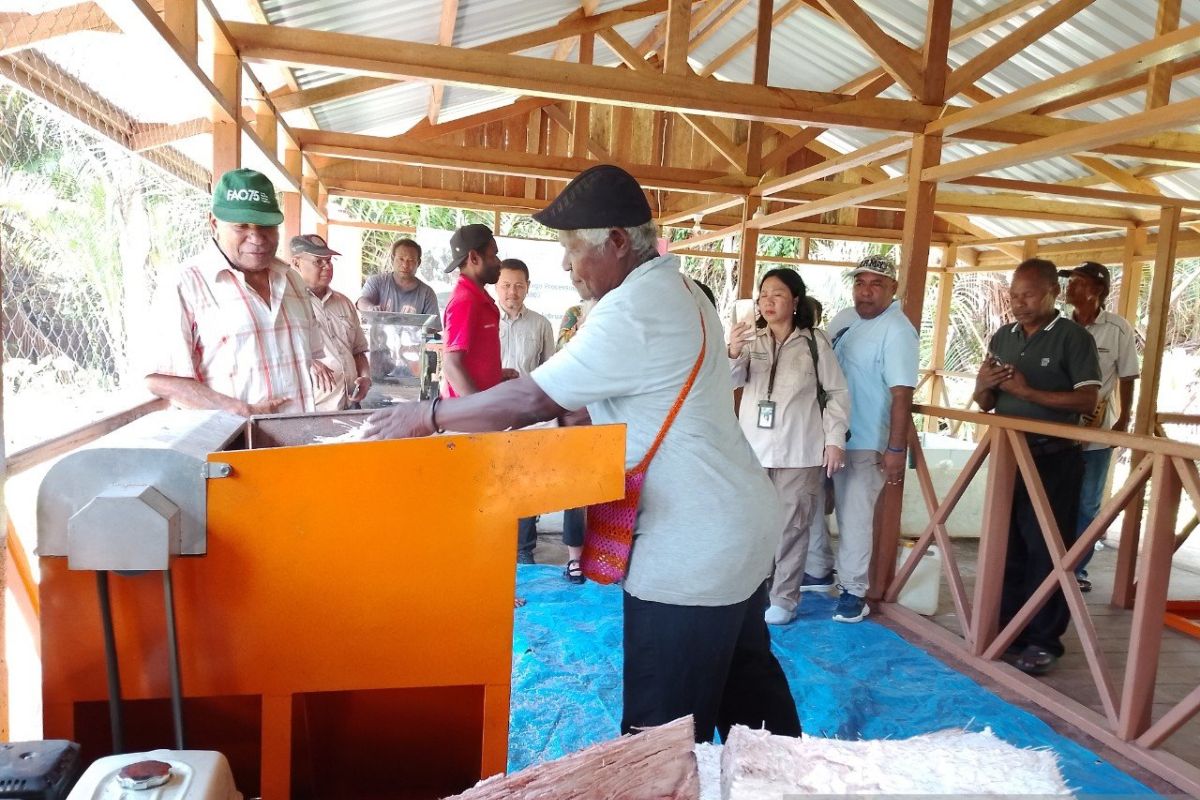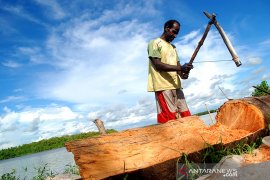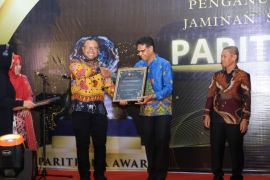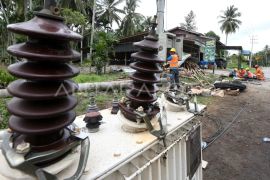Chairman of the Plantation Product Marketing Group of the Directorate General of Plantations, Elvyrisma Nainggolan, stated here on Monday that the new production house will make it easier for the community to produce sago.
"With the help of a production house and its equipment, the community will be more efficient in terms of time compared to the manual method that takes days," she remarked.
With modern tools, sago can be processed in just five hours, which will greatly benefit the community, especially in the region where labor can be scarce.
"The sago production (with equipment) will also be higher compared to manual processing. This gives added value to farmers and increases benefits for the community," she remarked.
Related news: Indonesia`s biggest sago factory begins operations in Papua
The National Program Assistant of the Food and Agriculture Organization (FAO), Theresa Siahaan, elaborated that her side aims to help the community in Yoboi Village develop sustainable sago processing by maintaining the sago forest.
"One of the ways is developing derivative products to improve the community's economy while still maintaining the sago forest," she remarked.
Founder of the Papua Strategy Analysis (APS), Claus Rumayom, stated that his organization supports faster development in Papua and serves as a liaison between FAO and the local indigenous people in Yoboi Village.
Head of Yoboi Village, Sefanya Wally, thanked the Directorate General of Plantations, the FAO, the New Zealand Government, and APS for their support.
"We want this kind of support, where (organizations) go straight to the village, meet with the community, and work to implement programs that are on-target and efficient," Wally affirmed.
Related news: On Lake Sentani, village harbors hopes of sago-fueled growth
Translator: Agustina, Kenzu
Editor: Yuni Arisandy Sinaga
Copyright © ANTARA 2025












